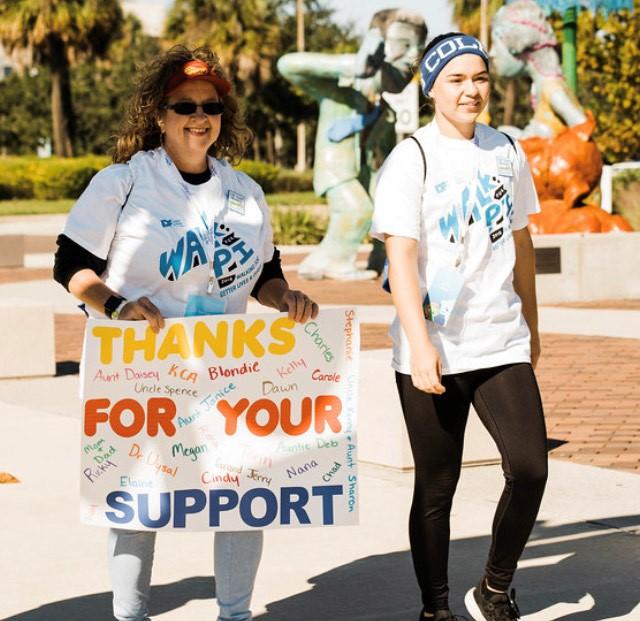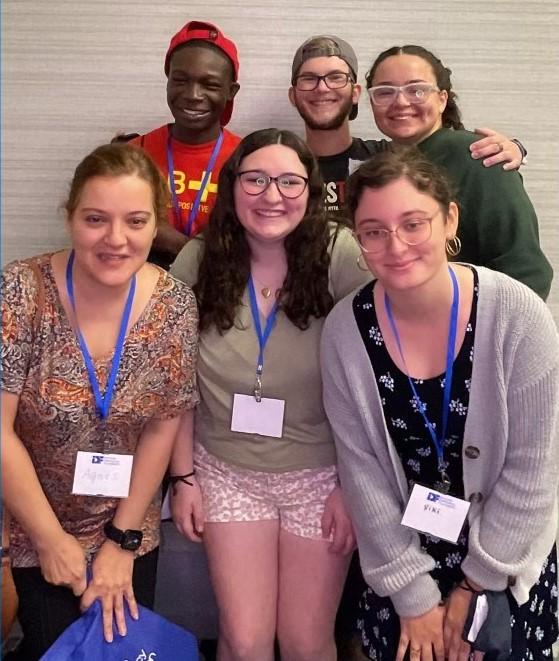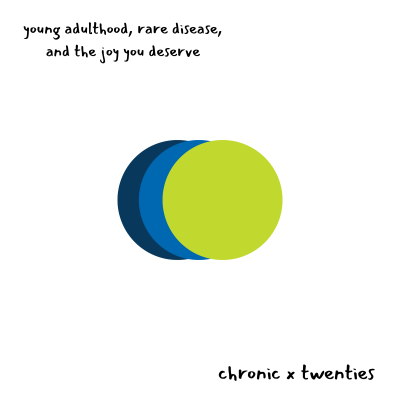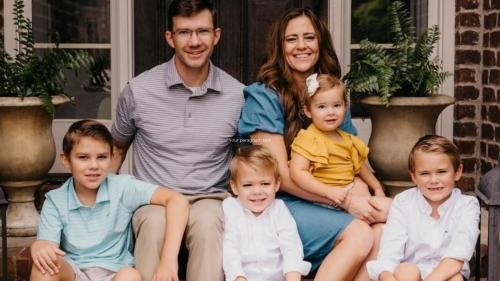
-
Understanding primary immunodeficiency (PI)

Understanding PI
The more you understand about primary immunodeficiency (PI), the better you can live with the disease or support others in your life with PI. Learn more about PI, including the various diagnoses and treatment options.
-
Living with PI
-
Addressing mental health
-
Explaining your diagnosis
- General care
- Get support
- For parents and guardians
-
Managing workplace issues
- Navigating insurance
-
Traveling safely

Living with PI
Living with primary immunodeficiency (PI) can be challenging, but you’re not alone—many people with PI lead full and active lives. With the right support and resources, you can, too.
-
Addressing mental health
-
Get involved

Get involved
Be a hero for those with PI. Change lives by promoting primary immunodeficiency (PI) awareness and taking action in your community through advocacy, donating, volunteering, or fundraising.
-
Advancing research and clinical care
-
Grants
-
IDF surveys
-
Participating in clinical trials
-
Diagnosing PI
-
Consulting immunologist
-
Clinician education

Advancing research and clinical care
Whether you’re a clinician, researcher, or an individual with primary immunodeficiency (PI), IDF has resources to help you advance the field. Get details on surveys, grants, and clinical trials.
-
Grants

A mathematics and French double major at Colby College in Maine, Darcy Gott didn’t pursue a career in either of those fields when she graduated in May 2023. Instead, she enrolled at Stetson University College of Law in her home state of Florida. Her attorney recommended she pursue a law career, and Gott’s diagnosis of primary immunodeficiency (PI) helped her narrow down the intended area of practice—disability law.
“I think people underestimate how important knowing your legal rights is because you want to know them in preparation for something that could happen, such as employment discrimination. It would put you in a much better position if, going into a job, you knew what steps should be taken if you think your employer is violating your rights, rather than having a panic moment because you don't know what to do and you don't know if it is something that you should speak to someone about,” said Gott.
In addition to working her way through her first year at Stetson, Gott is also a public policy intern with the Immune Deficiency Foundation (IDF). Her current project assists with efforts to ensure that insurers in all states offer either low or no co-pays for COVID treatments. In April, she’ll devote her time to IDF Advocacy Day in Washington, D.C.
“I never considered how I could help the community while also helping myself, and I would never have thought about getting into disability law or serving on the Disability Awareness Board at Colby without my diagnosis and IDF,” said Gott, 22.
Doctors diagnosed Gott with specific antibody deficiency (SAD) in the summer of 2018, just before her senior year in high school. She spent much of her junior year treating several different infections with rounds of antibiotics that weren’t fully effective.
A three-sport athlete, playing basketball and softball and running cross country, Gott said endless coughing affected her performance and interfered with team participation.
“It was terrible,” said Gott.

People with SAD have normal levels of antibodies but cannot produce antibodies to specific types of microorganisms that cause respiratory infections, resulting in recurrent ear infections, sinusitis, bronchitis, and pneumonia.
Bloodwork performed in May 2018 revealed Gott had no antibodies protecting her from pneumonia, even though she’d received the pneumococcal vaccine. The diagnosis of SAD didn’t surprise her too much, though, because as a baby, she had an IgA deficiency and stayed on prophylactic antibodies until age 5, when the condition subsided. With the new diagnosis, at least the teen had an explanation as to why her body couldn’t fight illness.
“It’s that time in your life when everything is changing, and when you have to sit out because you're always sick or people are making comments about you always being sick, it’s disheartening. To finally have an answer for why I'm continuously getting sick and having a plan to stop myself from getting sick was a huge relief,” said Gott, whose mother, LaNan Gott, a nurse, helped coordinate her care.
“I’m thankful that we caught it early because I know there are many people who have PI, and it takes them several years to decades to get a diagnosis. Mine took only eight months.”
Gott started intravenous immunoglobulin (IVIG) replacement therapy twice weekly and remained on it throughout high school.
“I was scared because it was a totally new thing. I was afraid of needles. I hated getting shots. But eventually, I realized that this was something that I would very likely have to do for the rest of my life, so I trained myself to get used to it,” said Gott.
As a college freshman, Gott switched to subcutaneous immunoglobulin (SCIG) replacement therapy but admits that her efforts to administer the treatments became sporadic by her sophomore year. Being 1,500 miles from home, carrying a heavy school workload, dealing with social pressure, and navigating COVID-19 all converged and pushed treatment to the background of her busy life.
“I think there are a lot of teens, with a PI especially, where once they become an adult and have this newfound independence and autonomy, they want to test the limits. You think, what if I don’t do it as often or just don’t do it at all?” said Gott.
“And then you get smacked in the face with some health problem, and you realize that maybe that wasn't the smartest idea to not take my meds.”
Despite falling behind in her treatments, Gott stayed connected to IDF, attending online workshops and serving as a mentor to other young people with PI. It was a continuation of a relationship with IDF she began in 2018 when she joined an IDF Tampa Walk for PI and attended the IDF National Conference and IDF Teen Escape in 2019.
“It was amazing because I was able to, for the first time, meet people my age or roughly the same age as me, who either had just been diagnosed themselves or have been dealing with it pretty much their entire lives,” said Gott.
Today, Gott not only provides pro bono law assistance to IDF but also serves on the IDF Youth Advisory Committee, setting up activities for teens and young adults.

Gott said she wants to help IDF reach undiagnosed young adults, who are aging out of having parents care for them and moving into a realm of medical autonomy where they are now responsible for their own healthcare decisions.
“If they can learn to recognize certain things like it’s not normal to have pneumonia frequently or sinus infections nonstop that don’t go away with antibiotics, they might go seek care from a specialist,” said Gott.
Gott is also looking forward to co-presenting with her immunologist a program on growing hypoallergenic plants and flowers at the 2024 IDF PI Conference set for June 20-22 in Chicago. She maintains a hydroponic garden (in which plants are grown in water only) in her condominium, where she grows greens for her bearded dragon.
“I think it’s a good option for people with a PI, especially if they can’t be around soil,” said Gott.
Having a PI can be overwhelming, said Gott, but she advises other young people to find outside interests that make them happy, take advantage of opportunities within the PI community, and choose positive people to be a part of their lives.
“If you come across people who are hesitant to be around you or don’t want to understand your diagnosis or are making their assumptions without asking you or educating themselves, then there’s no point in trying to assimilate with them,” said Gott.
“With this huge emphasis on trying to fit in it and trying to make friends, don't let that overshadow that you want to find the right set of friends.”
Related resources
Sign up for updates from IDF
Receive news and helpful resources to your cell phone or inbox. You can change or cancel your subscription at any time.





The Immune Deficiency Foundation improves the diagnosis, treatment, and quality of life for every person affected by primary immunodeficiency.
We foster a community that is connected, engaged, and empowered through advocacy, education, and research.
Combined Charity Campaign | CFC# 66309



